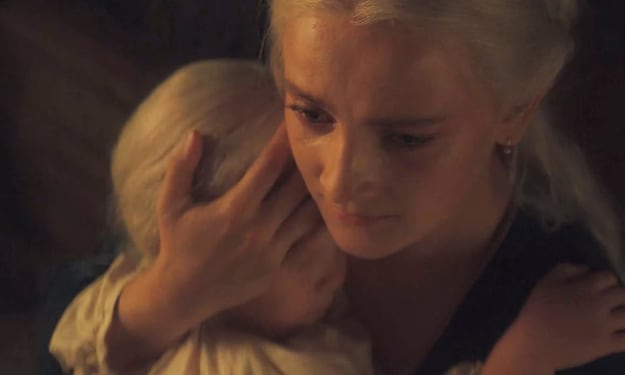So you’re a fan of the so-called one take wonder? Films that present their stories in one continuous shot spanning the entire length of its running time. In 2014 you watched Birdman, the Oscar winning film by Mexican director Alejandro González Iñárritu. It starred Michael Keaton, the actor who once played Batman and who now seemed to be making a comeback. As Birdman. You loved it of course. Keaton was always great and now he was in the hands of Iñárritu. You were blown away. You spoke to a friend about it. This friend of yours is a USC grad and self-described cinephile. Total arsehole. He makes mention of another single-take film called Russian Ark. Directed by some Russian filmmaker (obviously), he couldn’t remember the guys name exactly. So you Googled it. Turns out the director’s name is Aleksandr Sokurov and he was born in small Siberian village in 1951. When Russian Ark was released in 2002 it was considered a historical achievement. An hour and thirty-nine minutes of one continuous shot telling the story of a 19th century French aristocrat as he makes his way through the various rooms of the Russian State Hermitage Museum. It’s certainly stunning to look at with its gorgeous production design, costuming and crowded, carefully choreographed set pieces. But much of the historical context and encounters with historical figures are lost on you because you’re an American without a major in Russian history. The film is beautiful to be sure, but, really, it’s somewhat inaccessible to you. Birdman, however, was about actors and the New York theatre. About a has-been movie star looking to prove his artistic worth and be a better father maybe. It featured a bunch of actual movie stars you easily recognise and it reminded you of your own time working in the theatre with dreams of being on a Broadway stage. You laughed at Riggan’s failures to overcome the trappings of his ego and the humiliations he inadvertently suffered when it seemed like he was finally winning again. The spectre of his identity as a superhero franchise star haunted him. The Bird Man mocked him in the dressing room mirror. Here was a redemption story and everyone loves a good redemption story.
And then there was the cinematography by Emmanuel Lubezki. The camera was both patient and unwavering in its commitment to the action, moving effortlessly through backstage corridors and dressing rooms, Broadway house rooftops and packed Manhattan squares. It shared the stage with the actors as they partook in rehearsal processes and sat under the stage lights with them during performance. It moved up and down the aisle of a packed house like an usher, following Riggan as he unraveled and it seemed to almost magically fly out of a hospital window many stories above the concrete footpath below. And it did all of this in one unbroken take. Or so you thought. The truth of the matter is that Birdman presents the illusion of a single unbroken take, much like the more recent Sam Mendes directed 1917 (another Oscar winner). Technically speaking, Birdman cheats. The series of lengthy takes are stitched together using carefully choreographed camera movements such as the “swish pan”, which the editor of the film can then take advantage of, hiding the cut amid the motion blur and lighting conditions of the environment. It’s clever stuff and in the long, proud history of cinematic trickery — the movie magic that we don’t ever really need to know about but are the direct beneficiaries of — its efforts should be applauded rather than scrutinised.
But you’ve already seen Birdman, and Russian Ark wasn’t exactly your cup of tea. Have I got the film for you. A brilliant piece of German engineering, if you will? “Victoria”, directed by German director Sebastian Schipper was released in the summer of 2015, and the tag line sitting directly underneath the title, as featured on its theatrical release poster says it all. One city. One night. One take. No magic stitching here. Only the most brutal of commitments. Victoria tells the story of a young Spanish woman recently moved to Berlin. We meet her partying in a basement club, burning up the dance floor. There she meets a local named Sonne and the two engage in a simple enough flirtation. Sonne invites her to join him along with three other friends to hang out afterwards. This leads to a chain of events that make for an astonishing edge-of-your-seat thrill-ride in which nothing blows up and no digital behemoths terrorise Berlin’s denizens. Is it exhilarating? Very much so. Romantic? You bet. Terrifying? Oh yeah. Devastating? Devastating.
Victoria’s camera is every bit as confident as Birdman‘s in its movement — every bit as patient. It follows characters into elevators and taxicabs and climbs retractable ceiling ladders onto open rooftops. It closely tracks late night pedestrians and bicycles, then breathlessly abandons them for the added foreground texture and sense of motion offered by parked vehicles, before finding our seemingly would-be lovers again with a cozy two-shot and a couple of alternating singles. It embraces shadows and the yellow tint offered by street lamps. Windshield fog isn’t something to be wiped down by a lonely production assistant, it only adds texture and beauty. The cold white light from storefront refrigerators and underground parking lots function as romantic mood setters and underground briefing washes. The gentle kiss of a red traffic light across an exhausted face. Victoria’s frame lingers on faces and pulls away to find compositions that beg strange philosophical questions. Was the frame inspired by the vista it captured? Or did the vista make itself available for the frame? No doubt Alan Watts would’ve have chuckled at such notions. If Victoria teaches us anything, it’s that a single-take film need not cheat to convey the beauty of reality. That is its power.
If you were ever a twenty-something, clubbing in your local red-light district, lingering about with friends as the sun came up — bouncing off the concrete sidewalks with a stubborn refusal to call it a night — you’ll love the ambience of Victoria. But ambience alone does not a good film make. Thankfully, the plot of Victoria is perfectly paced and dramatic turning points are carefully woven into its fabric. You would be forgiven for thinking at times that you’re watching a documentary, but the simple yet cleverly used contrivances are there to remind you of what a wonderful fiction this really is. Did I mention how romantic this film is? We watch with much interest as Victoria and Sonne seem to inch increasingly closer to the proverbial edge that one must fall over and into love. The fact that we are privy to the rapid evolution of their relationship from its seemingly innocuous beginnings right through to a heartbreaking separation makes the finale that much more resonate and tragic. I spent two hours and eighteen minutes with this pair, and I wish I could’ve been at that nightclub with them to have had a few shots of tequila. Here’s a simple formula for you follow. If Birdman, Then Victoria.
About the Creator
Kire Tosevski
Kire Tosevski has been many things in his life. An actor. A New Yorker. An Angelino. He’s written and directed films and plays. He’s acted on stages and on sets. But he’s always had a name that at least sounded like he could be writer.
Enjoyed the story? Support the Creator.
Subscribe for free to receive all their stories in your feed. You could also pledge your support or give them a one-off tip, letting them know you appreciate their work.







Comments
There are no comments for this story
Be the first to respond and start the conversation.